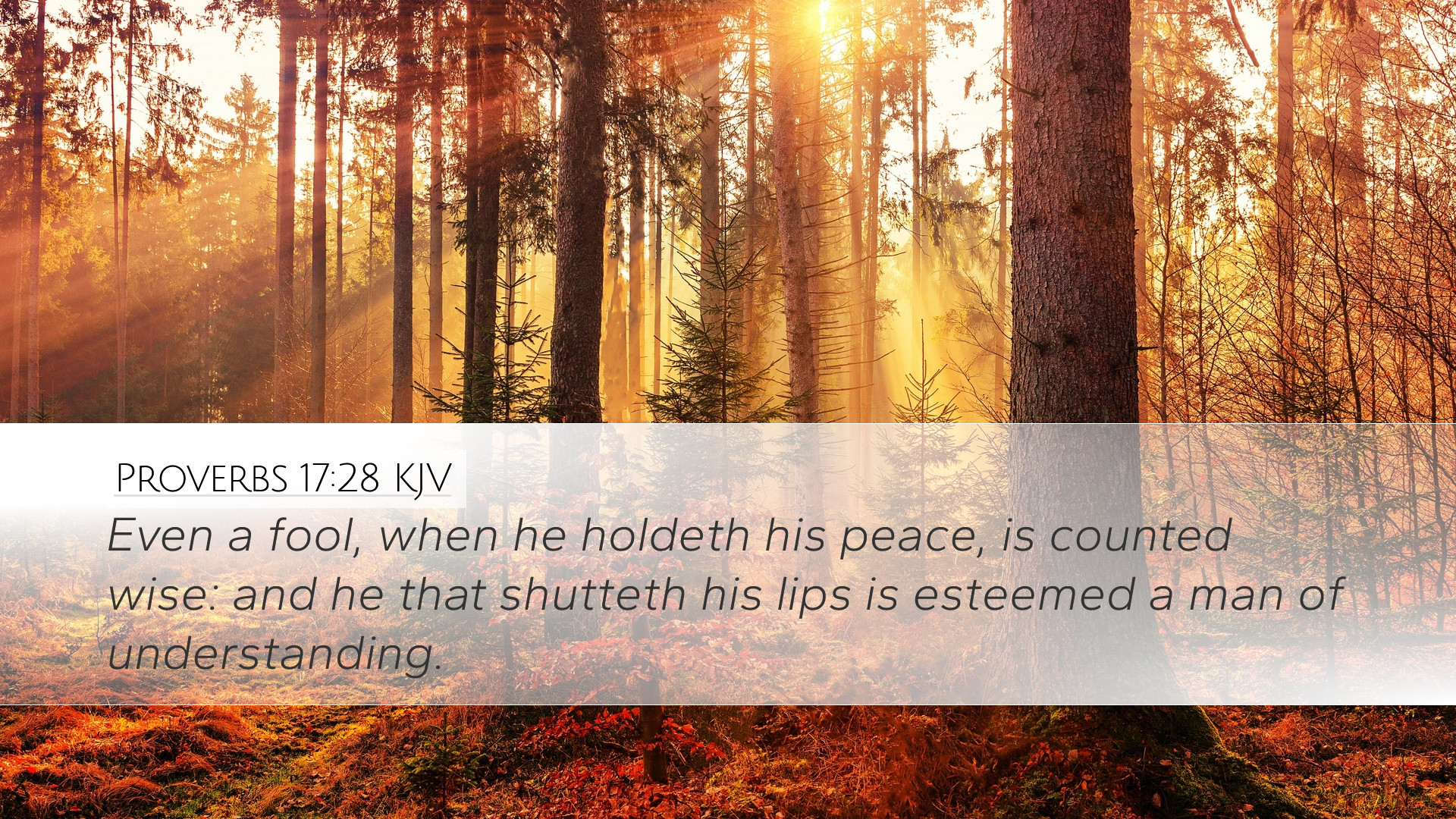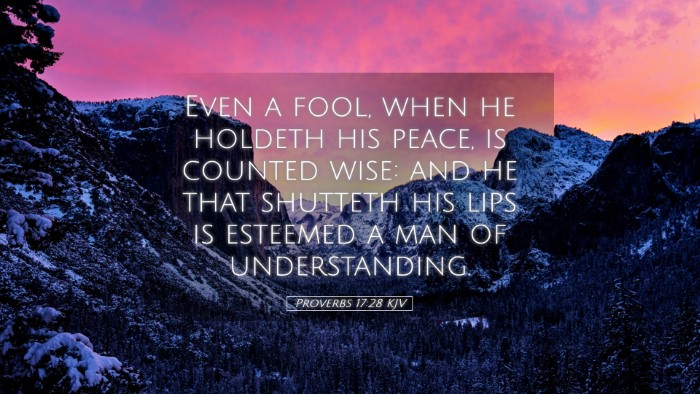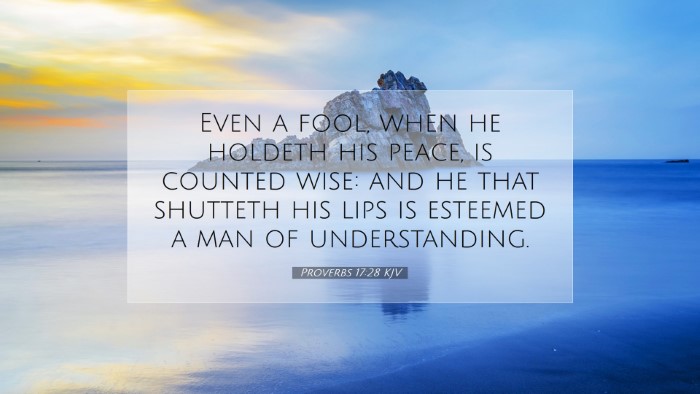Commentary on Proverbs 17:28
Verse: "Even a fool who keeps silent is considered wise; when he closes his lips, he is deemed intelligent." (Proverbs 17:28, ESV)
Introduction
This verse, tucked within the profound wisdom literature of Proverbs, highlights the value of silence over reckless speech. Insightful commentary from notable figures such as Matthew Henry, Albert Barnes, and Adam Clarke sheds light on the implications and practical applications of this verse in both personal and communal contexts.
Analysis of the Verse
The essence of Proverbs 17:28 is captured in its portrayal of silence as an effective tool for wisdom. A fool, who might otherwise be dismissed or ridiculed for his lack of understanding, can gain an appearance of wisdom if he exercises restraint in speech.
Matthew Henry's Perspective
Matthew Henry emphasizes the implications of silence, stating that a person who refrains from speaking is often perceived as wise, even if they may lack actual understanding. He notes that:
-
Restraint as Wisdom: The capacity to remain silent demonstrates a level of self-control and wisdom that transcends mere intelligence.
-
Perception Matters: Public perception favors the one who speaks less, equating silence with contemplation and depth of thought.
Henry illustrates that this verse teaches not only personal discipline but also the cultural value placed on listening over speaking. He encourages readers to recognize the significance of measured words and to embrace the power of thoughtful listening.
Albert Barnes' Insights
Albert Barnes expands upon the concept of silence by pointing out the societal implications of communication. He writes:
-
The Weight of Words: Words carry weight, and careless speech can lead to misunderstanding and conflict. Barnes advocates for prudence in discourse.
-
Judgment by Action: A fool's silence may elevate his standing in the eyes of others, highlighting that wisdom is not solely rooted in knowledge, but also in behavior and speech.
In summary, Barnes suggests that the ability to withhold comment demonstrates a wise approach to interactions and underscores that wisdom is as much about what one does not say as what one does say.
Adam Clarke's Commentary
Adam Clarke provides an enriching examination of the verse by relating it to broader truths within Scriptural wisdom. He notes:
-
Foolishness and Silence: Clarke defines a fool as one who acts against wisdom. Thus, even a fool can appear wise through the simple act of keeping silent.
-
Learning through Silence: He suggests that silence can be an opportunity for learning, allowing individuals to absorb knowledge through observation before responding.
Clarke emphasizes that silence in a time of conflict or when faced with complex issues can serve as a protective measure, preventing oneself from regretful statements that may arise from emotional reactions.
Theological Applications
This verse finds relevance in pastoral ministry, theological study, and daily Christian living. Its core message resonates profoundly in various areas:
-
In Pastoral Care: Ministers can approach sensitive situations with humility, recognizing that sometimes their silence invites the presence of the Holy Spirit to guide understanding and healing.
-
In Education: Students and scholars are urged to prioritize listening and observation as critical methods for gaining wisdom and insight before sharing their own conclusions.
-
In Personal Reflection: Individuals are called to internalize the value of silence within their spiritual lives, contemplating their responses and seeking divine wisdom before voicing opinions.
Conclusion
Proverbs 17:28 serves as a potent reminder that wisdom is not solely measured by knowledge or eloquence but significantly by the capacity to listen and exercise restraint. The collective insights offered by commentators like Matthew Henry, Albert Barnes, and Adam Clarke enhance our understanding of this proverb, encouraging readers to cultivate a spirit of silence as a means of demonstrating wisdom in a noisy world.
In application, may we strive to embody the principle that sometimes the best response is none at all; thereby growing in wisdom and understanding both in our hearts and in our interactions with others.


